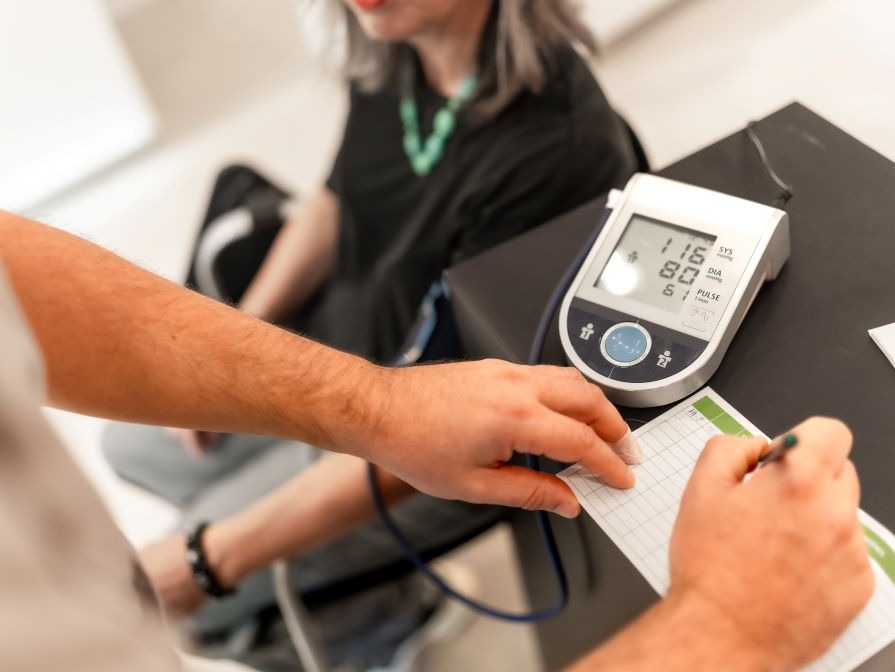
Blood pressure is a critical indicator of heart health, yet it often goes unnoticed until serious complications arise. High blood pressure, also known as hypertension, is often called the "silent killer" because it shows no symptoms but can lead to severe health issues over time. In this guide, we'll break down what blood pressure is, how to understand its readings, and how to manage it effectively.
For personalized care and support in managing your blood pressure, visit Circe Coaching, where we provide resources and guidance tailored to your cardiovascular health and wellness goals.
What Is Blood Pressure?

Blood pressure refers to the force exerted by circulating blood on the walls of your arteries. It is essential for moving oxygen and nutrients throughout your body. Blood pressure is measured using two numbers:
Systolic Pressure: The pressure when your heart beats, represented by the top number.
Diastolic Pressure: The pressure when your heart rests between beats, represented by the bottom number.
A healthy blood pressure reading typically falls below 120/80 mm Hg. Maintaining this balance is crucial for keeping your heart and arteries in good condition.
Understanding Blood Pressure Readings
Blood pressure readings are divided into categories:
Normal: Less than 120/80 mm Hg
Elevated: Systolic 120-129 and diastolic less than 80
Hypertension Stage 1: Systolic 130-139 or diastolic 80-89
Hypertension Stage 2: Systolic 140+ or diastolic 90+
Hypertensive Crisis: Systolic over 180 and/or diastolic over 120, requiring immediate medical attention.
Monitoring your blood pressure regularly helps detect any early signs of hypertension, enabling you to take timely action.
Why Is Blood Pressure Important?
High blood pressure can silently damage your body for years before symptoms appear. It increases the risk of:
Heart Disease and Stroke: Excessive pressure on your arteries can lead to heart attacks and strokes.
Heart Failure: Your heart works harder to pump blood, eventually weakening over time.
Kidney Damage: High blood pressure can impair kidney function, leading to long-term health issues.
Even slight increases in blood pressure can pose significant health risks, especially if left untreated.
How to Manage Blood Pressure Effectively

1. Adopt a Heart-Healthy Diet
Focus on consuming a balanced diet rich in fruits, vegetables, whole grains, and lean proteins. Reducing salt intake can also significantly lower blood pressure.
2. Stay Active
Regular physical activity, such as brisk walking, cycling, or swimming, helps lower blood pressure and strengthens the heart. Aim for at least 150 minutes of moderate exercise per week.
3. Manage Stress
Chronic stress can elevate blood pressure. Incorporate stress-reducing practices like deep breathing, meditation, and yoga into your daily routine.
4. Limit Alcohol and Avoid Tobacco
Both alcohol and tobacco can raise blood pressure levels. Reducing consumption or quitting entirely can significantly benefit your cardiovascular health.
When to Seek Medical Attention
If you experience symptoms such as severe headaches, chest pain, shortness of breath, or sudden vision problems, it could indicate a hypertensive crisis. Immediate medical attention is crucial in these situations.
Take Charge of Your Heart Health
Understanding and managing your blood pressure is essential for maintaining long-term health. Regular check-ups, healthy lifestyle choices, and proactive monitoring can significantly reduce the risk of severe complications.

For expert guidance and personalized care, visit Circe Coaching. Our health coaching program is dedicated to helping you achieve and maintain optimal cardiovascular health through education, support, and tailored solutions.
 Add Row
Add Row  Add
Add 




Write A Comment